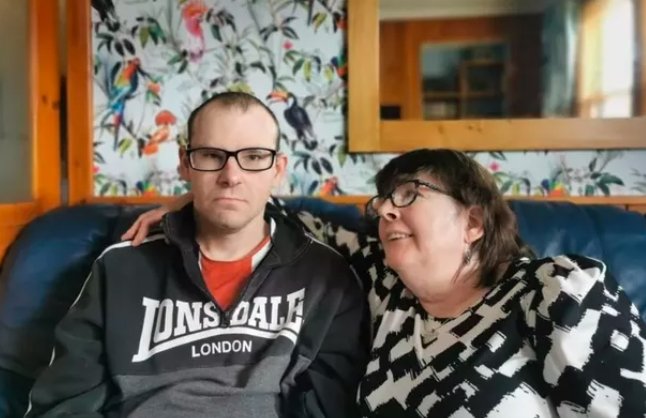In the heart of Scotland, a mother’s unwavering fight for her son’s liberation from a psychiatric hospital has sparked a national conversation about the treatment of neurodivergent individuals in secure wards.
The Struggle for Autonomy
Sylvia McMahon has been the voice of resilience and hope for her son, Jamie Henry, who has spent the last seven years confined within the walls of Woodland View Hospital. Her story is one of determination against a system that she believes has failed to recognize her son’s needs and rights as an autistic individual. McMahon’s advocacy has not only been a personal journey but also a public crusade for the rights of vulnerable adults in similar predicaments.
Jamie’s life in the hospital has been marked by a cycle of restraint and sedation, a response to his meltdowns that McMahon argues only exacerbates his challenges. The lack of understanding and proper care for his condition has led to a portrayal of Jamie that his mother contests, describing him as a “gentle giant” whose true personality is overshadowed by the hospital’s narrative.

A Call for Change
The plight of Jamie and others like him has reached the steps of the Scottish Government, where families have united to demand a shift in the approach to caring for neurodivergent individuals. They seek an end to the practice of placing distressed persons in high-security psychiatric wards, advocating instead for support within the community, surrounded by familiarity and love.
McMahon’s fight is emblematic of a larger issue – the need for a system that understands and adapts to the unique experiences of autistic individuals. The current methods, she argues, are not only ineffective but detrimental, leaving individuals like Jamie without the chance to thrive in an environment suited to their needs.
The Future of Neurodivergent Care
The conversation ignited by McMahon’s efforts is paving the way for potential reforms in the treatment of neurodivergent individuals. It raises critical questions about the balance between security and personal freedom, the role of family in care, and the importance of tailored support systems that recognize the humanity behind the diagnosis.
As the debate continues, the hope is that stories like Jamie’s will lead to a future where neurodivergent individuals are not confined by the constraints of misunderstanding but are embraced by a society that champions their right to a fulfilling life.


















